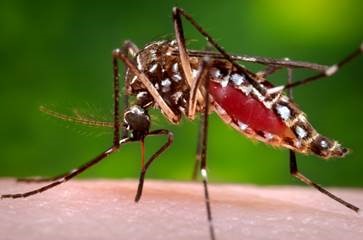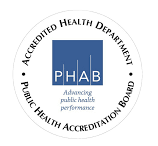Zika Virus
 Zika virus is a relatively new disease for the Western hemisphere. It first appeared in Brazil in May of 2015. It has since spread to over 35 countries in Central and South America and the Caribbean. Zika is spread through mosquito bites and through sexual transmission from a man to his sexual partner. According to the CDC, the most common symptoms are fever, rash, joint pain and red, itchy eyes. Symptoms are usually mild and last several days to a week. Many people who have Zika will not experience symptoms. There is currently no vaccine or treatment for Zika.
Zika virus is a relatively new disease for the Western hemisphere. It first appeared in Brazil in May of 2015. It has since spread to over 35 countries in Central and South America and the Caribbean. Zika is spread through mosquito bites and through sexual transmission from a man to his sexual partner. According to the CDC, the most common symptoms are fever, rash, joint pain and red, itchy eyes. Symptoms are usually mild and last several days to a week. Many people who have Zika will not experience symptoms. There is currently no vaccine or treatment for Zika.
"Arkansas residents traveling to Central or South America or the Caribbean, where Zika is present, should take precautions against mosquitoes. If you are pregnant, consider postponing your trip," said Dr. Nate Smith, Arkansas Department of Health Director and State Health Officer. "Arkansas has the kind of mosquitoes that carry Zika virus, so mosquitoes here in Arkansas can become infected with the virus if they bite someone who has Zika. For this reason, people traveling to countries with Zika should avoid mosquito bites for 10 days after they return. Travelers to areas where Zika is present should also go to their doctor if they experience any of the symptoms associated with Zika within three to seven days after they return."
Click Zika icon above for digital and print resources.
At A Glance: Zika Virus in Arkansas
Zika Virus in Pregnancy
Pregnant women are most at risk for complications from the Zika virus because serious birth defects can occur in children born to women who are infected with the virus. The CDC has issued travel guidance for women who are pregnant or who may become pregnant. You can stay up-to-date on their latest travel notices at www.cdc.gov/travel.
Prevention
Ways to avoid mosquito bites include:
- Using an insect repellant containing DEET, picaridin, IR3535 or oil of lemon eucalyptus.
- Wearing long-sleeved shirts and trousers.
- Using air conditioning or window and door screens to keep mosquitoes outside.
- Reducing the number of mosquitoes inside and outside yoru home by emptying standing water from containers such as flowerpots or buckets. Mosquitoes can breed in as little amoutn of water as a bottle cap.
Resources



